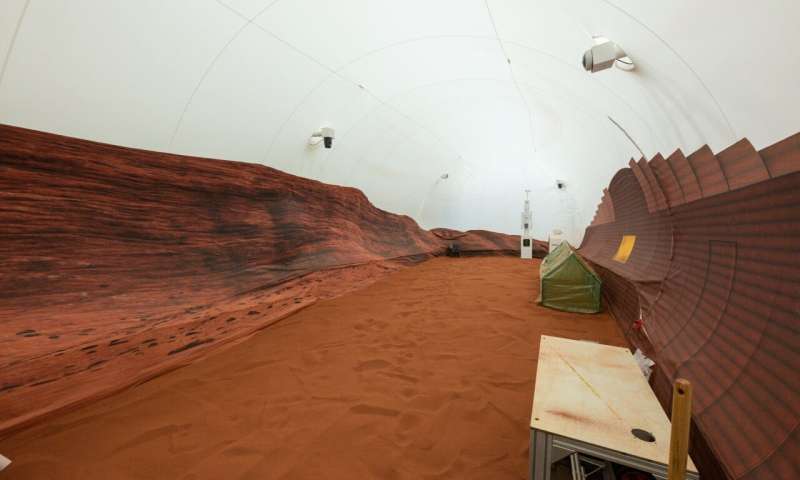
Copernical Team
Ariane 5 flight VA261: weather delays launch

Europe’s Ariane 5 rocket is being prepared for its final launch, following the replacement of pyrotechnical transmission lines which delayed its earlier scheduled liftoff. Due to unfavourable weather Flight VA261 will now lift off no earlier than 5 July at 23:00 BST/00:00 CEST, pending suitable conditions for launch. You can follow live on ESA Web TV; transmission starts 30 minutes before earliest liftoff time.
Chinese private space company to launch latest rocket in 2024
 In the vanguard of the rapidly evolving commercial space industry, Beijing-based private firm Space Pioneer plans the inaugural launch of its TL 3 carrier rocket in 2024. The launch will signify an ambitious stride toward fortifying China's presence in the commercial space launch market.
As reported in an exclusive interview with China Daily, Kang Yonglai, founder and chairman of Space Pio
In the vanguard of the rapidly evolving commercial space industry, Beijing-based private firm Space Pioneer plans the inaugural launch of its TL 3 carrier rocket in 2024. The launch will signify an ambitious stride toward fortifying China's presence in the commercial space launch market.
As reported in an exclusive interview with China Daily, Kang Yonglai, founder and chairman of Space Pio Satellites offer enhanced early warning systems for disaster-prone Asian communities
 Findings from a recent study underscore the potential for satellite-based early warning systems to bolster evacuation protocols in certain Asian communities. Published on April 27, 2023, in the Emergency Management Science and Technology journal, the study highlights the limitations of conventional ground-based telecommunication systems in regions such as Bangladesh, Bhutan, and Mongolia.
Findings from a recent study underscore the potential for satellite-based early warning systems to bolster evacuation protocols in certain Asian communities. Published on April 27, 2023, in the Emergency Management Science and Technology journal, the study highlights the limitations of conventional ground-based telecommunication systems in regions such as Bangladesh, Bhutan, and Mongolia. SmartSat CRC Pledges $7M for Autonomous AI Spacecraft Development
 The three-year project, Spacecraft Autonomy and Onboard AI for Next Generation Space Systems, known as SCARLET-a, will bring together eight SmartSat partners: Airbus, Asension, Deakin University, Defence Science and Technology Group, Leonardo Australia, Saab Australia, Swinburne University of Technology, and University of South Australia (UniSA) in a collaborative research effort.
SCARLET-
The three-year project, Spacecraft Autonomy and Onboard AI for Next Generation Space Systems, known as SCARLET-a, will bring together eight SmartSat partners: Airbus, Asension, Deakin University, Defence Science and Technology Group, Leonardo Australia, Saab Australia, Swinburne University of Technology, and University of South Australia (UniSA) in a collaborative research effort.
SCARLET- Quasar 'clocks' show Universe was five times slower soon after the Big Bang
 Scientists have for the first time observed the early universe running in extreme slow motion, unlocking one of the mysteries of Einstein's expanding universe.
Einstein's general theory of relativity means that we should observe the distant - and hence ancient - universe running much slower than the present day. However, peering back that far in time has proven elusive. Scientists have now
Scientists have for the first time observed the early universe running in extreme slow motion, unlocking one of the mysteries of Einstein's expanding universe.
Einstein's general theory of relativity means that we should observe the distant - and hence ancient - universe running much slower than the present day. However, peering back that far in time has proven elusive. Scientists have now ISRO terminates hot test for semi-cryogenic engine midway
 The Indian Space Research Organisation (ISRO) recently experienced a hiccup in their semi-cryogenic engine development project. A scheduled hot test was halted midway due to unexpected engine performance.
On July 1, 2023, ISRO revealed that it had initiated the inaugural hot test on an intermediate configuration of the semi-cryogenic engine, designated as Power Head Test Article (PHTA). Th
The Indian Space Research Organisation (ISRO) recently experienced a hiccup in their semi-cryogenic engine development project. A scheduled hot test was halted midway due to unexpected engine performance.
On July 1, 2023, ISRO revealed that it had initiated the inaugural hot test on an intermediate configuration of the semi-cryogenic engine, designated as Power Head Test Article (PHTA). Th Unfavourable weather delays final Ariane 5 launch
 The farewell flight of Europe's workhorse Ariane 5 rocket, scheduled for Tuesday, has been postponed for 24 hours due to bad weather, operator Arianespace said.
The 117th and final flight of an Ariane 5 rocket, after 27 years of launches, had been due to take off between 2130 and 2305 GMT from Europe's spaceport in Kourou, French Guiana.
"Due to unfavourable winds at high altitude above
The farewell flight of Europe's workhorse Ariane 5 rocket, scheduled for Tuesday, has been postponed for 24 hours due to bad weather, operator Arianespace said.
The 117th and final flight of an Ariane 5 rocket, after 27 years of launches, had been due to take off between 2130 and 2305 GMT from Europe's spaceport in Kourou, French Guiana.
"Due to unfavourable winds at high altitude above Hawai'i observatories add color, depth to European Euclid mission

Launched on July 1, 2023, the European Euclid mission will observe billions of galaxies over one-third of the sky to create a map of the Universe. But Euclid's map will be in black and white; telescopes in Hawai'i, including the Subaru Telescope, are needed to determine the colors of the galaxies. The color data will be used to deduce the distance, thus creating a 3D map, uncovering the mysteries of dark matter and dark energy.
The European Space Agency (ESA) Euclid space telescope mission will explore the mysteries of dark matter, dark energy, and cosmic evolution.
Alone in a dark cave: What can we learn from extreme survival experiments?

Why do humans undertake journeys of personal exploration, or subject themselves to challenging conditions for long periods of time? What might we learn from their experiences?
British mountaineer George Mallory undertook his fatal attempt to summit Mount Everest in 1924 simply "because it's there". While such quests may have deeply personal motivations, research carried out during expeditions in extreme conditions can contribute to our understanding of how humans respond to environmental challenges.
The research outcomes can potentially be applied to a variety of settings, including remote locations here on Earth and even human space exploration.
Searching for extreme environments
Many explorers seek out "extreme environments." This term describes harsh and unusual environmental conditions where it is difficult for life forms like humans to survive and thrive.
Examples include places that experience extremes of temperature, pressure, altitude, rainfall, breathable air, natural light, or hazardous chemical concentrations.
In recent years, humans have undertaken many extreme experiments, either alone or in groups.
In June 2023, Joseph Dituri, a biomedical engineer at the University of South Florida, completed a record-breaking 100 days living 9.15 meters underwater in a special habitat.
NASA locks four crew members into a one-year mission in a simulated Mars habitat

On June 25, 2023, a crew of four volunteers entered a simulated Martian habitat, from which they will not emerge for over a year. Their mission: to learn more about the logistics—and the human psychology—of living long-term on another planet, without ever leaving the ground.
The mission is called CHAPEA (Crew Health and Performance Exploration Analog) and is the first of three planned simulations between now and 2026, each of which will teach scientists progressively more about what it takes for long-duration human spaceflight to succeed.
CHAPEA is based at NASA's Johnson Space Center in Houston, Texas. The habitat, called Mars Dune Alpha, is a 1,700 square-foot 3D-printed living space, in which the crew will live, work, exercise, sleep, and perform experiments.
Through the magic of virtual reality, the mission will also involve extra vehicular activities (EVAs), in which crew members will briefly leave their habitat to enter an adjacent enclosure complete with red sand.

